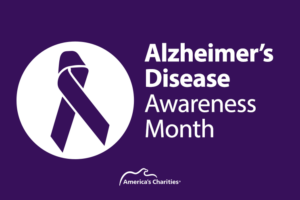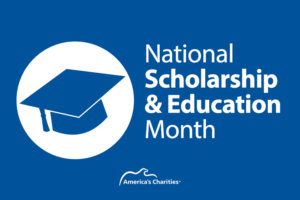Sarah Ford | October 20, 2013
NBCC Releases Third Annual Progress Report on the Disease
Breast Cancer incidence and mortality remained essentially unchanged since 2011; no major advances in treatment for breast cancer
 Washington, D.C., October 11, 2013—The National Breast Cancer Coalition (NBCC) today released its Breast Cancer Deadline 2020® Third Annual Progress Report, which summarizes the state of breast cancer and the status of Breast Cancer Deadline 2020®, NBCC’s campaign to know how to end the disease by January 1, 2020. The report is an update to the 2011 Baseline Report, which described the lack of adequate progress despite billions of dollars directed to the disease, and to the Second Annual Progress Report, released in 2012, which found that there were no breakthroughs in breast cancer diagnosis or treatment in 2011.
Washington, D.C., October 11, 2013—The National Breast Cancer Coalition (NBCC) today released its Breast Cancer Deadline 2020® Third Annual Progress Report, which summarizes the state of breast cancer and the status of Breast Cancer Deadline 2020®, NBCC’s campaign to know how to end the disease by January 1, 2020. The report is an update to the 2011 Baseline Report, which described the lack of adequate progress despite billions of dollars directed to the disease, and to the Second Annual Progress Report, released in 2012, which found that there were no breakthroughs in breast cancer diagnosis or treatment in 2011.
The new report finds that while the scientific community’s understanding of breast cancer biology has increased during the past year, there have been no significant breakthroughs in treatment and outcomes to report for women with breast cancer.
“Despite years of campaigns to raise awareness, ever-expanding screening programs, increased fundraising efforts and research we are nowhere near where we should be in terms of preventing breast cancer and preventing deaths from it,” said Fran Visco, president of NBCC and a 26-year breast cancer survivor. “The incidence of women diagnosed with advanced breast cancer has not changed. Rates of diagnosis of truly lethal disease have remained stable since 1975. Breast cancer remains the second leading cause of cancer death for women in the US, and it is the leading cause of cancer death for women globally.”
According to the report, treatment options did not change significantly during 2012. The Food and Drug Administration (FDA) approved three drugs, only one of which demonstrated an improvement in overall survival.
The report included several studies released in 2012 and 2013 that reveal new findings about over-diagnosis and over-treatment of breast cancer. A 2012 study published in the New England Journal of Medicine in 2012 estimated that more than one million women had been over-diagnosed as a result of mammography screening, and have undergone treatments involving surgery, radiation, hormones and chemotherapy for abnormalities that otherwise would not have caused illness. A 2013 study published in the British Medical Journal estimated that for every breast cancer death avoided from screening, an additional one to three deaths can be expected as a result of radiotherapy for those over-diagnosed because of their increased risk of dying of heart disease and lung cancer.
Public policy continues to be a vital part of NBCC’s Breast Cancer Deadline 2020® campaign. According to the report, the Accelerating the End of Breast Cancer Act, legislation developed by NBCC has been reintroduced in the 113th Congress. Currently the legislation has bipartisan support of 25 Senators and 173 Members in the House.
NBCC made headway with the Artemis Project® for a Breast Cancer Preventive Vaccine in 2012. As reported, NBCC awarded seed grants to two research groups that have begun work identifying possible vaccine targets. NBCC’s research work also includes a partnership with BioMarin Pharmaceutical on a phase III trial for BMN 673, a PARP Inhibitor that researchers believe might be useful in targeting cancers driven by a mutation in gBRCA.
“NBCC is committed to knowing how to end breast cancer by January 1, 2020,” said Visco, “We will continue to work toward that deadline through collaborative research, federal legislation, grassroots advocacy and media outreach.”
NBCC has a long history of being a leader in the world of breast cancer—taking on big issues, challenging business as usual, facing controversy head on and achieving success. In many ways the entire history of NBCC has been about doing what everyone else says is impossible. “We have to end our addiction to comfortable. To easy. To good enough. We have to be leaders. True leaders. That means all of us who want to play a role in Breast Cancer Deadline 2020® must find the will, the strength and the belief to do what it takes to achieve the end of breast cancer,” said Visco.
About the National Breast Cancer Coalition
The National Breast Cancer Coalition (NBCC) is dedicated to knowing how to end breast cancer by January 1, 2020 through the power of grassroots action and advocacy. NBCC supports increasing funding for breast cancer research; monitors how those research funds are spent; expands access to quality health care for all; and ensures that trained advocates influence all decision making that affects breast cancer. Join NBCC, learn more and take action. Visit BreastCancerDeadline2020.org.
###
Source: National Breast Cancer Coalition
Get Resources and Insights Straight To Your Inbox
Explore More Articles
Open Position: Customer Service Coordinator (Remote-Part Time)
Position Title: Customer Service Coordinator (Remote – Part Time) Department: Charitable Funds Management Solutions We are a non-profit charitable organization looking for skilled individuals who…
Read ArticleGet Resources and Insights Straight To Your Inbox
Receive our monthly/bi-monthly newsletter filled with information about causes, nonprofit impact, and topics important for corporate social responsibility and employee engagement professionals, including disaster response, workplace giving, matching gifts, employee assistance funds, volunteering, scholarship award program management, grantmaking, and other philanthropic initiatives.




